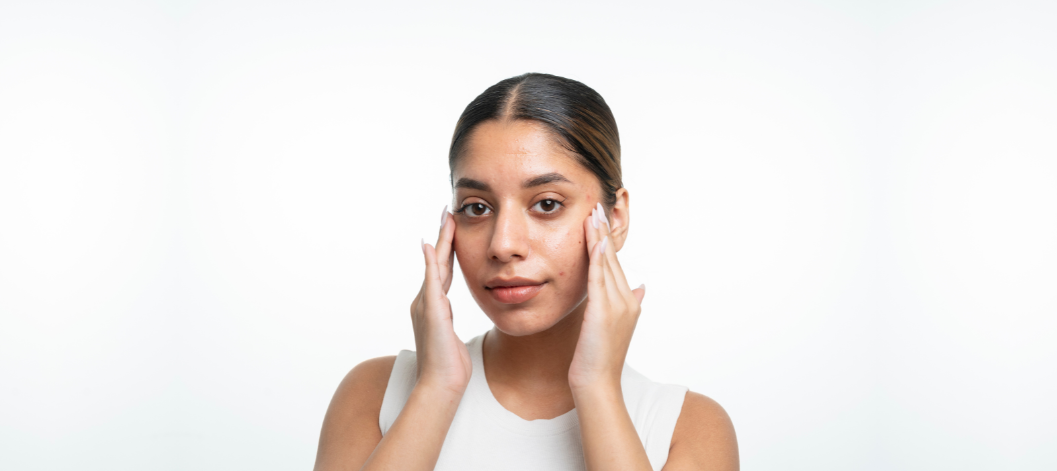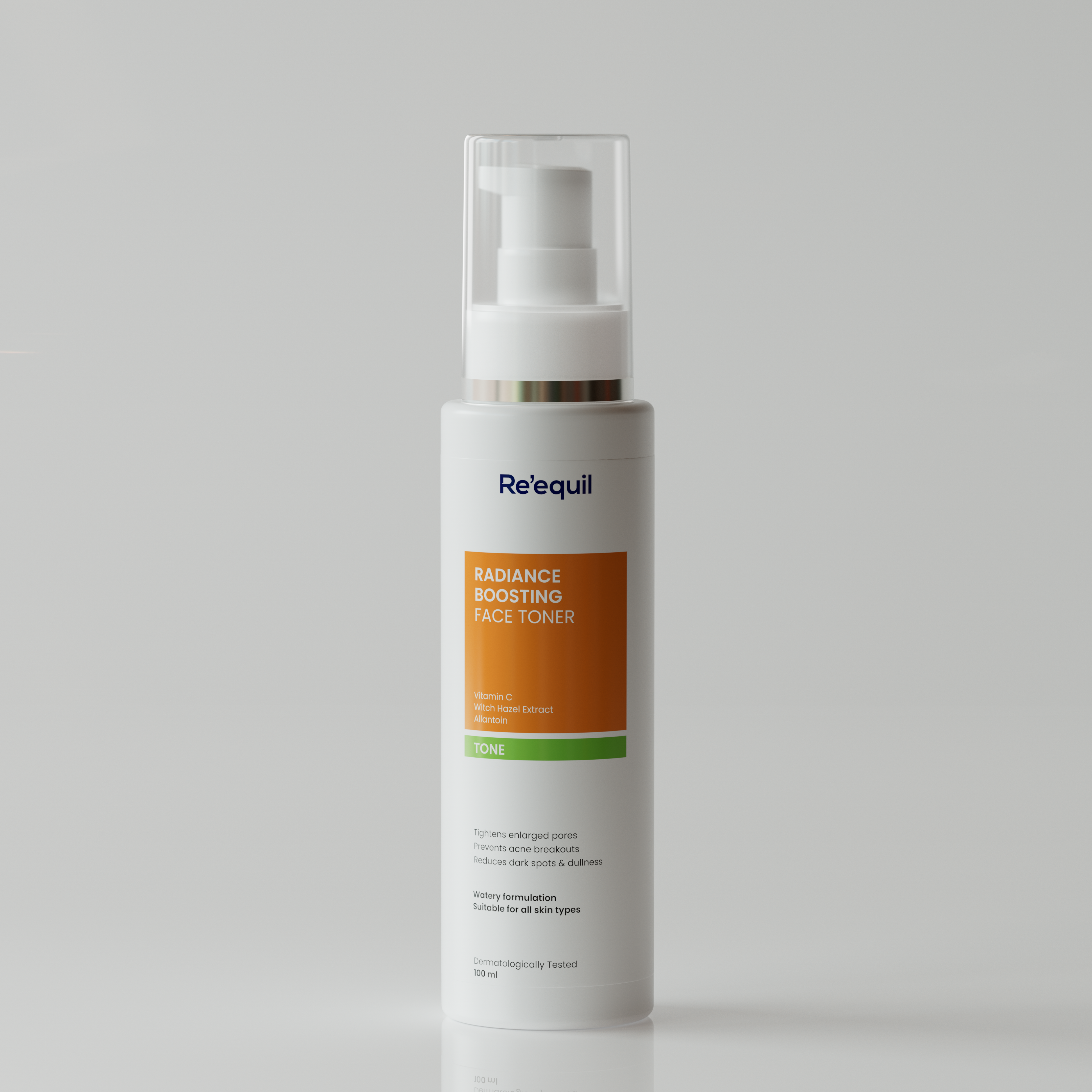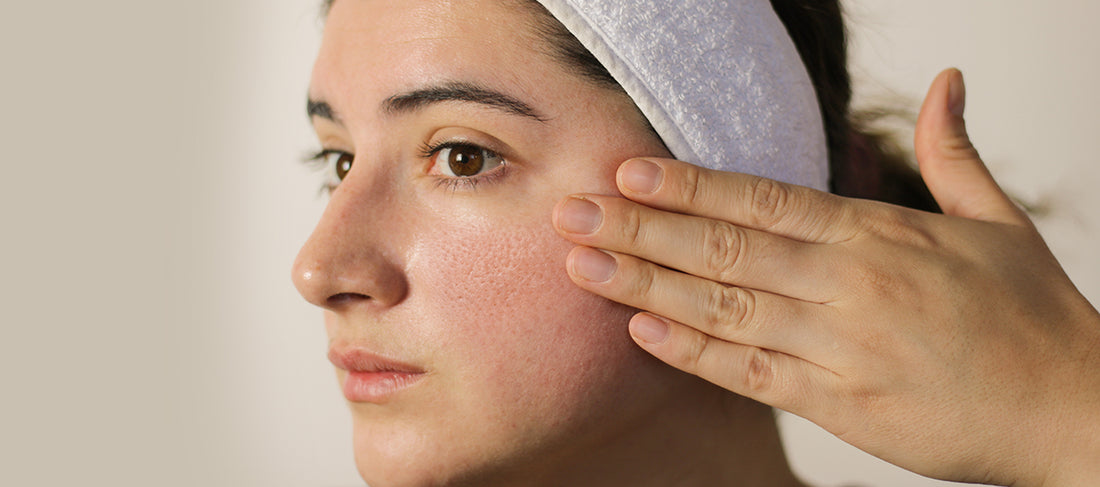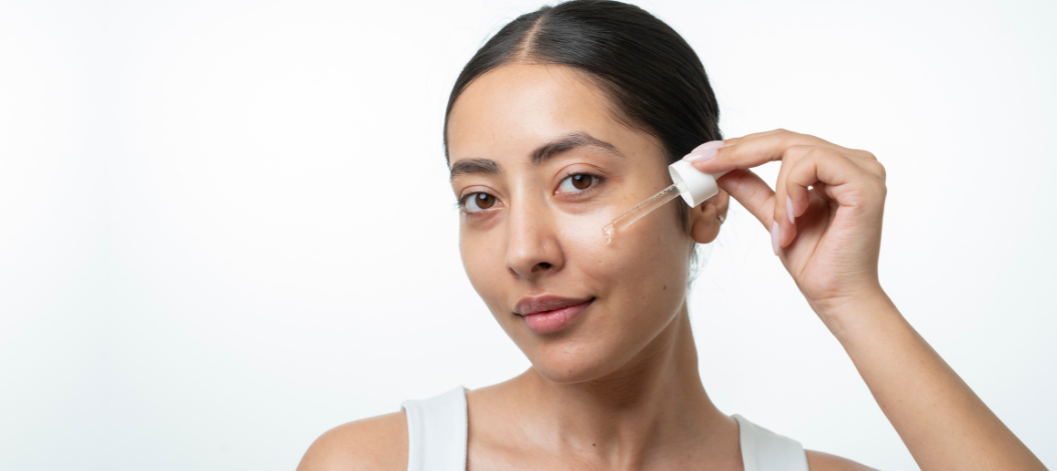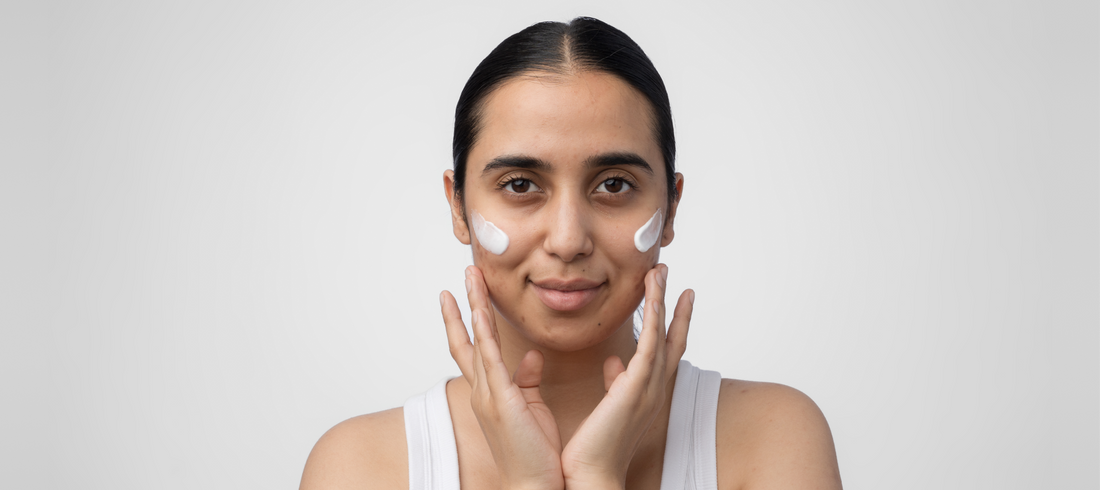Oily skin often comes with its own set of challenges, including acne, clogged pores and excessive sebum production.
Many people with oily skin are cautious when choosing skincare ingredients, fearing they might worsen their concerns.
Vitamin C, an effective antioxidant, has gained immense popularity in skincare routines, but is it suitable for oily skin?
Let’s explore the benefits of Vitamin C, its compatibility with oily and acne-prone skin and the best practices for incorporating it into your routine.
Is Vitamin C Good for oily, acne-prone skin?
The answer is a resounding YES.
Vitamin C is not only suitable for oily skin but also offers multiple benefits tailored to its unique needs.
Vitamin C can regulate oil production in skin and prevent clogged pores.
This makes it a safe and effective ingredient for managing acne-prone skin without causing further breakouts.
Key benefits of Vitamin C for oily and acne-prone skin
Oily and acne-prone skin requires a delicate balance between controlling excess oil, preventing breakouts and promoting healing.
Vitamin C stands out as an ideal ingredient for oily skin type due to its ability to address multiple concerns simultaneously.
Here are the key benefits -
1. Reduces inflammation
Acne often causes redness and irritation, which can worsen the appearance of breakouts.
Vitamin C has anti-inflammatory properties that help calm the skin and reduce redness. It helps soothe inflamed areas without causing further irritation.
2. Boosts collagen production
Vitamin C stimulates collagen synthesis, which helps to repair the skin, reduce acne scarring and maintain skin elasticity.
Vitamin C acts as a cofactor for prolyl and lysyl hydroxylase, enzymes crucial for collagen synthesis.
This boost in collagen production strengthens the extracellular matrix, enhancing the skin's barrier function and reducing pore size.
3. Fades dark spots
Vitamin C inhibits tyrosinase, an enzyme critical in melanin synthesis. It reduces post-inflammatory hyperpigmentation (PIH).
This is especially important for those with acne-prone skin, as scarring can be a persistent issue after breakouts.
4. Protects skin against environmental damage
Vitamin C is a potent antioxidant that shields the skin from harmful free radicals caused by environmental factors like pollution and UV exposure.
This protection is vital for acne-prone skin, as environmental damage can worsen inflammation and trigger more breakouts.
5. Regulates oil production
While Vitamin C does not directly control sebum production, it immensely helps maintain skin balance and overproduction of oil.
It also helps support the skin’s natural processes, leading to fewer clogged pores.
6. Brightens and even skin tone
Vitamin C helps fade dark spots, hyperpigmentation, and acne scars, promoting a more even skin tone.
How to use Vitamin C serum for oily skin?
Adding Vitamin C serum to your skincare routine can transform your skin – but applying it the right way is key to getting the best results and avoiding irritation.
Here’s a simple step-by-step guide:
Choose the right formulation
Look for serums containing L-ascorbic acid, a highly effective form of Vitamin C.
Opt for lightweight, non-comedogenic formulations that will not clog pores. Products designed specifically for oily skin types work best.
Cleanse first
Always start with a gentle cleanser to remove dirt and excess oil before applying Vitamin C serum.
A clean base allows for better absorption, enhancing the serum's effectiveness.
Apply in the morning
Vitamin C works best when applied in the morning as it protects the skin from environmental damage.
Pairing it with sunscreen amplifies this protection.
Follow up with Sunscreen
Since Vitamin C enhances the skin’s sensitivity to sunlight, always follow up with a broad-spectrum sunscreen.
This combination acts as a powerful shield against harmful UV rays.
Start slowly
If you are new to Vitamin C, begin with a lower concentration (5%) and gradually move to higher concentrations (10-15%) as your skin builds tolerance.
This prevents irritation and allows your skin to adjust comfortably.
Layer with compatible products
Pair Vitamin C with Hyaluronic Acid to keep your skin hydrated and balanced.
Avoid using it alongside potent actives like Retinol or Benzoyl Peroxide to reduce the risk of sensitivity.
Does Vitamin C clog pores?
One of the biggest concerns for people with oily skin is whether a product will clog their pores and lead to breakouts.
Fortunately, Vitamin C is non-comedogenic, meaning it does not clog pores. In fact, it can help:
- Prevent clogging of pores: By reducing excess sebum production and promoting skin cell turnover, Vitamin C helps keep pores clear.
- Combats blackheads and whiteheads: Its exfoliating properties can remove dead skin cells that contribute to blackheads and whiteheads.
Pro tips for using Vitamin C with oily skin
Maximise the benefits of Vitamin C for oily skin by using it correctly to avoid irritation or clogged pores.
Here are pro tips to maintain balance and clarity in your routine -
- Layer wisely: Avoid layering Vitamin C with exfoliating acids like AHA/BHA to prevent irritation. Stick to a simple routine.
- Store properly: Vitamin C is sensitive to light and air, which can reduce its effectiveness. Store your serum in a cool, dark place and ensure the packaging is airtight.
- Monitor your skin’s reaction: Watch for signs of sensitivity, such as redness or stinging. If these occur, reduce usage frequency or switch to a lower concentration.
- Sunscreen is a must: Always pair Vitamin C with a broad-spectrum sunscreen to protect your skin from UV damage and enhance its brightening effects.
Potential side effects and considerations for oily skin
While Vitamin C is highly beneficial, it is essential to use it correctly to avoid potential side effects, especially for oily skin.
Here are some considerations:
- Initial breakouts: Some individuals may experience purging as Vitamin C accelerates skin cell turnover, temporarily bringing impurities to the surface.
- Irritation or redness: High concentrations of Vitamin C, particularly in sensitive or acne-prone skin, can cause redness, itching, or a stinging sensation. Start with lower concentrations and gradually increase it.
- Oxidation concerns: Vitamin C is unstable and can oxidise when exposed to air or light, potentially irritating the skin or losing effectiveness. Choose products in airtight, opaque packaging and store them in a cool, dark place.
Conclusion
Vitamin C is a skincare superstar that is perfectly suited for oily skin. Its ability to regulate oil production, fight acne, brighten post-acne marks and improve overall skin health makes it a valuable addition to your routine.
By choosing the right formulation and following proper application techniques, you can unlock radiant, healthy skin without compromising your skin’s natural balance.
Whether you are battling acne, struggling with oily shine or looking to brighten your complexion, Vitamin C can help you achieve your skincare goals.
Just remember to pair it with a consistent sunscreen application and enjoy the transformative benefits of this powerful ingredient.






